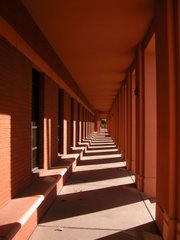Turkey and Iraq have reached
agreement on a new security partnership and have signed an agreement to
fight terrorism on both sides of their shared border. The development
strengthens the credibility of Nouri al-Maliki's government, especially since
the Turks had to dispense with a major demand:
Iraq and Turkey have signed a security agreement aimed at curbing the
activities of the Turkish Kurdish separatist group, the PKK.
However, the final agreement does not include a key Turkish proposal that
its troops be allowed to pursue PKK fighters over the border into Iraq. The
proposal had been strongly opposed by the Kurdish officials in Iraq.
Turkey says they will continue to press the issue of hot pursuit for PKK
terrorists. They will have much less leverage now, however, after the completion
of these negotiations. Maliki needed the prestige that came with a partnership
with Turkey, and he needed to make sure the Kurds did not see Turkish troops
crossing the border. He's unlikely to back down now that he has the security
agreement in hand.
This does nothing to resolve the continued rivalries between their own sects, but developing relationships with their neighbors helps strengthen the central government and strengthening the central government does help lead to eventual compromise among the parties.
Bill Roggio has this about AQI's ever decreasing sphere of influence.
Nine months after the announcement of the Baghdad Security Plan and the
subsequent "surge" of US forces, the battle for Baghdad remains engaged. With
the effort to secure Baghdad from al Qaeda in Iraq and the Mahdi Army alike, the
southwestern security district of Doura has proven difficult to tame. The
soldiers of the 3rd Squadron, 2nd Stryker Cavalry Regiment are currently engaged
in a heated battle against al Qaeda in Iraq in a corner of Doura.
Commanded by Lieutenant Colonel Rod Coffey, the Wolfpack of the 3rd
Squadron, 2nd Stryker Cavalry Regiment arrived in Baghdad in August and assumed
control of the battlespace in a dangerous segment of Doura on September 7. The
Wolfpack’s area of operation consists of the neighborhoods of Shurta, Asiya, and
Mechanics, which are nestled in the far eastern corner of the Rashid district.
(Rashid was split into Bayaa and Doura for the purpose of the Baghdad Security
Plan.)
The three neighborhoods are divided by long strips of open space, each
several hundred meters across and run north to south. Shurta and Asiya are
described as relatively safe after the Wolfpack cleared the two neighborhoods
upon arrival. Residents “are supportive and provide tips,” Coffey said while on
patrol in the neighborhoods.
The good news of the day out of Iraq is this
U.S.-led forces have killed one of the most important leaders of Al Qaeda
in Iraq, a Tunisian believed connected to the kidnapping and killings last
summer of American soldiers, a top commander said Friday.
Brig. Gen. Joseph Anderson said the death of the terrorist in a U.S.
airstrike Tuesday south of Baghdad, and recent similar operations against Al
Qaeda, have left the organization in Iraq fractured.
"Abu Usama al-Tunisi was one of the most senior leaders ... the emir of
foreign terrorists in Iraq and part of the inner leadership circle," Anderson
said.
Al-Tunisi was a leader in helping bring foreign terrorists into the country
and his death "is a key loss" to Al Qaeda leadership there, Anderson told a
Pentagon news conference.
On the political reconciliation front, we have this
Iraq's Sunni vice president held a rare meeting Thursday with the country's
top Shiite cleric to seek support for a 25-point blueprint for political reform,
the latest effort by both Islamic sects to promote unity amid unrelenting
violence.
...
Vice President Tariq al-Hashemi said Grand Ayatollah Ali al-Sistani praised
his initiative during their two-hour meeting in the holy city of Najaf, 100
miles south of Baghdad. The reclusive Shiite spiritual leader previously has met
with Sunni clerics, but it was his first meeting with a senior government
official from the disaffected minority Islamic sect, aides said.
"He generally blesses the initiative," al-Hashemi said, saying he found
al-Sistani politically "neutral" and eager to promote national unity.
Al-Sistani has played a key role in shaping the political future of Iraq
following the 2003 overthrow of Saddam Hussein's regime and wields considerable
influence over Shiite politicians and their followers.
It should be noted that previous such initiatives have failed, however I firmly believe that Iraqi politicians are learning how to be politicians and every failure brings them one step closer to success. Stay tuned.














No comments:
Post a Comment